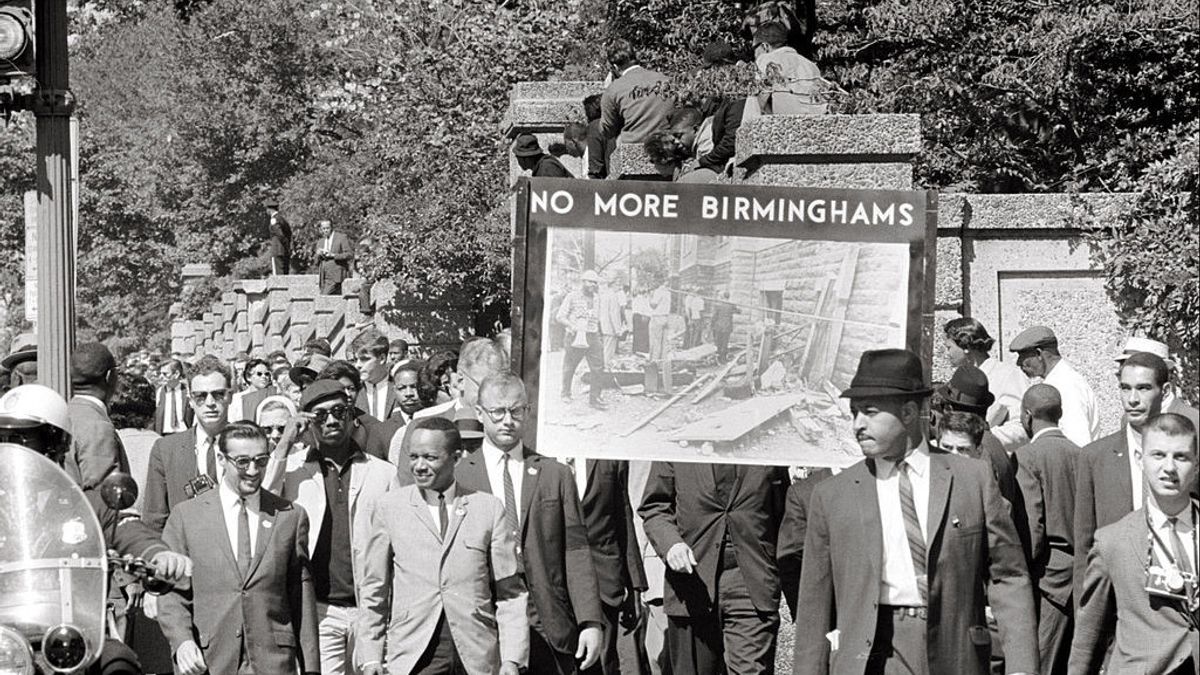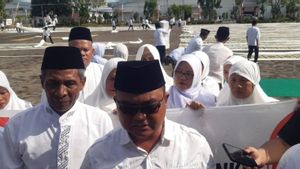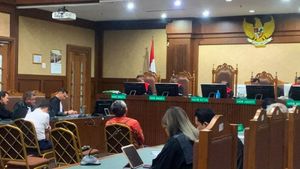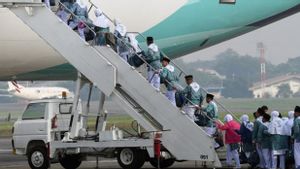JAKARTA - A dynamite bomb exploded at 16th Street Baptist Church, Birmingham, Alabama at 10.22 today, September 15 57 years ago or in 1963. When the explosion occurred, church members were attending a Sunday school class, half an hour before the service began.
The bomb exploded on the east side of the building, while five girls were getting ready in the restroom which was underground. The explosion ejected mortar and bricks from the front of the building. The walls crumbled and the room filled with smoke, the church congregation scrambling to save themselves.
Under a pile of rubble in the basement of the church, the bodies of four girls, Addie Mae Collins, Cynthia Wesley, and Carole Robertson, all 14 years old, and 11-year-old Denise McNair were found. Their fifth daughter, Sarah Collins, lost her right eye in the explosion. Several other people were injured.
The perpetrators of the bombing were a group of extremists from the Ku Klux Klan (KKK) white supresmasi movement. They blew up the church, which is located in a vital area for activists staging civil rights protests. Apart from killing 4 girls, 14 others were injured in the explosion.

Around the middle of the 20th century, the civil rights advocacy movement was in full swing in the United States. The mass wave was the aftermath of acts of discrimination committed by white citizens and police officers who often used violence against blacks.
Birmingham is a major city of protests, marches and rallies that often result in police brutality and white violence. Homemade bombs planted by white supremacists in homes and churches became so commonplace, that the city is sometimes known as "Bombingham."
Meanwhile, Alabama Governor George Wallace is the main enemy of desegregation and Birmingham has one of the strongest and most violent groups of the KKK. The city's police commissioner, Eugene "Bull" Connor, was well known for his willingness to use brutality against radical protesters, union members and blacks.
Launching History, Tuesday, September 15, local African-American churches such as the 16th Street Baptist Church are a fundamental area by which many organizations stage civil rights protests. In 1963, the 16th Street Baptist Church held several meetings led by civil rights activists.
Previously, KKK members had indeed intimidated the protesters. They routinely call the church with bomb threats intended to disrupt regular church meetings and services. Until finally their threat turned out to be not a mere figment.

Riots broke out across the city following the church bombings. Two young African-Americans were killed and the National Guard was called in to restore order. Martin Luther King, Jr., speaks at the funeral of three women who died in a church bombing.
Despite repeated demands that the perpetrators be brought to justice, the first trial in the case was not held until 1977. In 1977, Alabama Attorney General Bob Baxley reopened the investigation and KKK leader Robert E. Chambliss was brought to justice for the bombing and convicted of murder. Continuing to maintain his innocence, Chambliss died in prison in 1985.
The case was reopened in 1980, 1988 and 1997, when two other former KKK members, Thomas Blanton and Bobby Frank Cherry, were tried. Blanton was convicted in 2001 and Cherry in 2002; both received life imprisonment. The fourth suspect, Herman Frank Cash, died in 1994 before being tried.
Director Spike Lee turned the action of the 16th Street Baptist Church bombing into an Oscar-nominated documentary film 4 Little Girls (1997). In the film, Lee interviews witnesses to the bombing and family members of the victims. While at the same time exploring the background of white segregation and supremacy at the heart of that time period.
Anger over the deaths of the four women helped build growing support behind the ongoing struggle to end segregation. The event also built support that would help pass the Civil Rights Act 1964 and the Voting Rights Act 1965. In an important sense, the impact of the bombing was precisely the opposite of the perpetrators' intent.
The English, Chinese, Japanese, Arabic, and French versions are automatically generated by the AI. So there may still be inaccuracies in translating, please always see Indonesian as our main language. (system supported by DigitalSiber.id)









